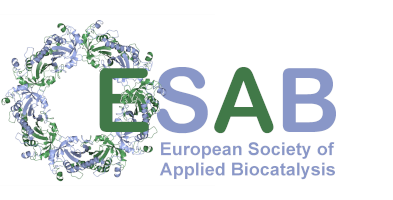Biotechnologies for net-zero carbon: sustainability aspects for policy makers
Abstract
To date much public policy has been focused on carbon capture and storage (CCS). However, CCS is still largely unproven technology, and storage does not offer added value. Carbon capture andutilisation (CCU), on the other hand, could see the creation of anew industry in which waste materials are transformed into useful products, making many direct and indirect jobs and wealth. Biotechnology is one of the disciplines where advances are being made to create this new manufacturing paradigm, sometimes calledbiomanufacturing. In many net-zero carbon technologies fora, biotechnologies are often overlooked. The production of commodity chemicals and materials from crude oil and gas today is regulated strongly by different approaches (e.g., REACH in Europe, TSCA in the United States). What is missing is sustainability as a mode of governance to ensure that a truly sustainable new economy is produced that does not repeat the mistakes of the past. Innovation policy is required from several policy families. A jumble of government policies without either sequence or timing is fraught with possibilities for inefficiencies, repetitions across various ministries, research councils and innovation agencies, expensive lock-ins and thus wasted time and money. What is presentedhere is a holistic policy framework that would provide governments with a template for policy to provide the sequence and timing needed. Moreover, it could be used as a tool to show where different ministries have to work together. It combines specific policies with general policies so that policy makers can see context. There is a strong likelihood that there will also be a need for a connection to macroeconomic policy: commodity and energy price rises are well known for triggering inflation and civil unrest.
About the Speaker(s)
 Jim Philp (PhD) is a microbiologist who has worked as a policy analyst since 2011 at the OECD, specialising in industrial biotechnology, synthetic biology and biomass sustainability. He was an academic for about sixteenyears researching environmental and industrial biotechnology: bioremediation, biosensors, wastewater science and engineering. He became involved withvarious UK government initiatives in biotechnology, such as Biotechnology Means Business, and BioWise. He was a coordinator of the LINK Bioremediation Programme, at the academic-industrial interface for about six years. In all he spent 8.5 years working for Saudi Aramco in Saudi Arabia as an oil Biotechnologist, investigating field problems related to chemistry and microbiology, and developing biotechnology solutions for improved oil recovery and exploitation. He has authored over 300 articles. He was elected as a Fellow of the Royal Society of Chemistry in 2015, and an Associate Fellow of the Institution of Chemical Engineers in 2016.
Jim Philp (PhD) is a microbiologist who has worked as a policy analyst since 2011 at the OECD, specialising in industrial biotechnology, synthetic biology and biomass sustainability. He was an academic for about sixteenyears researching environmental and industrial biotechnology: bioremediation, biosensors, wastewater science and engineering. He became involved withvarious UK government initiatives in biotechnology, such as Biotechnology Means Business, and BioWise. He was a coordinator of the LINK Bioremediation Programme, at the academic-industrial interface for about six years. In all he spent 8.5 years working for Saudi Aramco in Saudi Arabia as an oil Biotechnologist, investigating field problems related to chemistry and microbiology, and developing biotechnology solutions for improved oil recovery and exploitation. He has authored over 300 articles. He was elected as a Fellow of the Royal Society of Chemistry in 2015, and an Associate Fellow of the Institution of Chemical Engineers in 2016.
